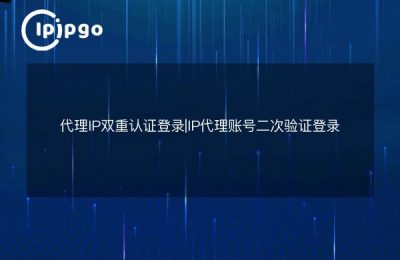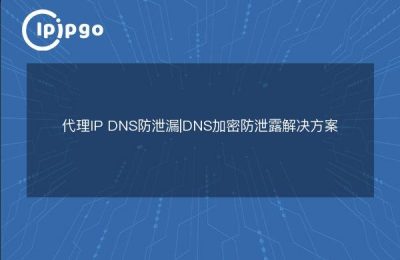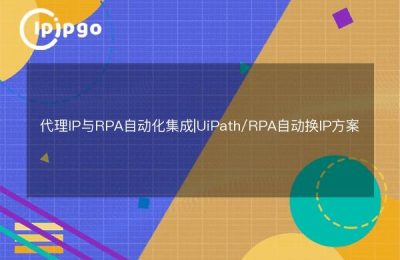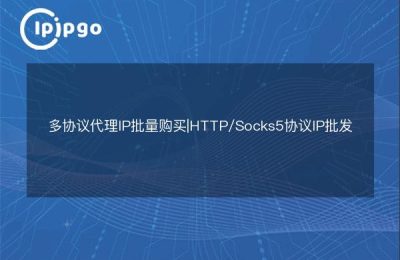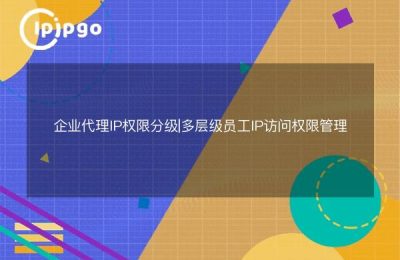
First, choose the right type of high anonymity agent is the first step to prevent blocking
Many newbies directly take the ordinary proxy IP to do the crawler, the result is half an hour to be banned. The one that can really carry the anti-crawl must be theHighly anonymous residential agents, such IPs are identical to the characteristics of ordinary users surfing the Internet. Like the dynamic residential IP pool provided by ipipgo, each request comes from real home broadband, and the data crawl does not expose the identity of the crawler.
Second, IP rotation strategy determines survival time
Even with a high stash of IPs you have to be careful about the pace of replacement. Two options are recommended:
① Rotation by number of requests: Immediate IP change for every 50-100 requests completed
② rotate at intervals: Automatic switching of new IPs every 3-5 minutes
ipipgo's dynamic IP pool supports real-time API extraction, and with their intelligent switching interface, it can automate IP updates without interrupting the task.
III. Agreement camouflage is more important than thought
Many sites detect connection protocol characteristics. Tests have found that using the following three protocols at the same time effectively reduces the recognition rate:
- HTTP/1.1 Routine requests
- HTTPS encrypted requests
- SOCKS5 Penetration Protocol
The ipipgo all-protocol support feature is especially useful here, as their proxy gateway automatically matches the best protocols without the need for manual configuration.
Fourth, browser fingerprints should be synchronized to change
Changing IPs without changing fingerprints is like wearing a mask and a work uniform - you'll still be recognized. Be sure to synchronize the IP change every time you switch:
√ User-Agent version
√ Screen resolution parameters
√ Time zone language setting
√ Cookie storage policy
It is recommended to use ipipgo's fingerprint library feature to automatically generate matching browser environment parameters for each request.
V. Request header management against feature detection
This is the most easily overlooked detail, but a must-check item for anti-crawl systems:
false demonstration: Fixed Accept-Encoding, Same Connection State
proper practice: Randomize these parameters per request:
Accept-Language | en-US,zh-CN;q=0.9
Accept-Encoding | gzip, deflate, br
Cache-Control | max-age=0
VI. Requests for humanized fluctuations in speed
Never use fixed intervals! There are natural fluctuations in human operation:
Normal range: 0.8 sec-3.5 sec/time
It is recommended to set a random delay:
time.sleep(random.uniform(0.8, 3.5))
ipipgo's intelligent speed control module automatically adjusts to the response speed of the target site to avoid triggering frequency control.
VII. Continuity of mandate for exception handling decisions
When a status code such as 403/429 is encountered:
1. Stop the current IP request immediately
2. Try again after switching to a new IP
3. Recording of anomalous characteristics to blacklists
ipipgo's meltdown mechanism automatically isolates the problem IP at the first exception, more than 5 times faster than manual processing.
Eight, log analysis to uncover the problem IP
There are three things you must do before the end of each day:
① Statistics on the success rate of each IP
② Mark IP segments with more than 3 timeouts
③ Check the common characteristics of blocked IPs
ipipgo's management backend comes with a visual analytics panel that can directly locate the ASN or server room to which the problem IP belongs.
Frequently Asked Questions QA
Q: What is the difference between a high anonymous agent and a regular agent?
A: Highly anonymous proxies will completely hide the proxy features, and the server side can only see the real residential IP, while ordinary proxies will expose the Proxy information in the header.
Q: How do I detect if an agent is really high anonymous?
A: Using the detection interface provided by ipipgo, the complete request header information seen by the server will be returned after the request, checking for the presence of exposed fields such as X-Forwarded-For.
Q: What should I be aware of when starting multiple crawler threads at the same time?
A: Be sure to ensure that each thread uses a separate IP pool. ipipgo supports the creation of multiple sub-accounts, and different threads call different API keys to avoid IP resource conflicts.

